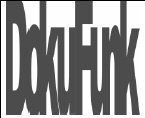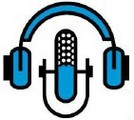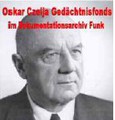Documentary Archive Radio Communications
(International Foundation QSL COLLECTION)
Media: A Mirror of the World
Little more than a century ago the first signal ignited the age of radio communications. Today a dense information network spans the globe, and we can receive pictures and data by radio from the very frontiers of our solar system. But technical improvements, stunning as they may be, do not cover the entire story of what happened - and why. Technical solutions are sought and found by people, and people are always part and parcel of their respective societies. The media, in that sense, accurately mirror the world at large, reflecting who decides what we are allowed to know, what we are expected to believe, and whether we are entitled or forbidden to communicate.
We, the volunteers of the Documentary Archive, aim to collect even apparently “unimportant” items of evidence from these 120 years of radio history, to save them from getting lost and keep them for generations to come; true to our motto:
The future needs a memory
International Foundation QSL Collection,
a strictly non- profit volunteer institute with headquarters in Vienna, Austria, was founded more than twenty years ago. It is supported by individuals, amateur radio societies, broadcasters and broadcast listeners, archives, historians, publishers, enterprises etc. on all continents. A board oversees our collections and archives, and controls all projects. We collect whatever relates to the history of radio (with the sole exception of “hardware”: we are not a radio museum!) With more than six million objects filed, we are the world's biggest organization of its kind, and the only one with such a wealth of interdisciplinary collections. Thecollection of QSL cards, awards, and logbooks, covers the entire era from pioneer days to today. It is a unique and gigantic global data base, supplemented by a photo collection, a library of books and magazines, and a large documentary unit of letters, public and private records, research files and similar archival material. The audio-visual archives consist of thousands of films, videos, private and broadcast tapes and discs – and of downloads from the most perishable medium, the internet.
We do not buy or sell but rely entirely on donations. Individuals have given us treasures unearthed at home, donated parts of their private collections, or, as we prefer, bequeathed material to us during their lifetime.
How to make sure your personal collection will survive
We receive bequests, exchange items of which we have multiple exemplars with other archives etc. All projects and overheads are financed entirely by charitable donations. Whatever we keep Is available to the public, and everybody is welcome, at any time, to contact us for an appointment.
To prevent the loss of your own private collection of radio related items we invite you to join our ranks and sign a Declaration of Support (No membership fee or other financial obligation involved) and/or a Declaration of Bequest. Please note that we collect no radio hardware and no amateur radio SWL-reception reports after 1960. (Collections of material sent to SWLs/BCLs will, of course, be accepted.)
The "Kuratorium"
"International Curatorium / QSL Collection" is an incorporated non-profit institution based in Vienna according to Austrian law. The board of Curators steers, oversees and decides on all activities and projects, and it seeks and secures the financial resources needed.
Dokumentationsarchiv Funk - Documentary Archive Radio Communications
 The collections and archives comprise a unique and gigantic global data base, from the pionier days to today, supplemented by a photo collection, a library of books and magazines, and a large documentary unit of letters, public and private records, research files and similar archival material - mainly in the realms of both amateur radio and broadcasting, but also with an outstanding collection of commercial fixed and mobile radio services. Our databases respond to even the most intricate search combinations with immediate results from almost a terabyte of information.
The collections and archives comprise a unique and gigantic global data base, from the pionier days to today, supplemented by a photo collection, a library of books and magazines, and a large documentary unit of letters, public and private records, research files and similar archival material - mainly in the realms of both amateur radio and broadcasting, but also with an outstanding collection of commercial fixed and mobile radio services. Our databases respond to even the most intricate search combinations with immediate results from almost a terabyte of information.
Audiopool / Videopool / Internet-Pool
 The audio-visual archives consist of thousands of films, videos, private and broadcast tapes and discs – and downloads of the most perishable medium, the internet. A constantly updated collection of media magazines, with more than 3.000 editions on file, dates back to fifty years of broadcasting - and so do the 30.000 station identifications and jingles of local, regional, national, and international broadcasters. Some of our donors have spent a lifetime recording media-related broadcasts and air-checks. We, in turn, add valuable background information interviewing media personalities, prominent or unknown ("oral history"). Nowhere else is there such a variety of unpublished or rare material.
The audio-visual archives consist of thousands of films, videos, private and broadcast tapes and discs – and downloads of the most perishable medium, the internet. A constantly updated collection of media magazines, with more than 3.000 editions on file, dates back to fifty years of broadcasting - and so do the 30.000 station identifications and jingles of local, regional, national, and international broadcasters. Some of our donors have spent a lifetime recording media-related broadcasts and air-checks. We, in turn, add valuable background information interviewing media personalities, prominent or unknown ("oral history"). Nowhere else is there such a variety of unpublished or rare material.
QSL Collection
 The collection of QSL cards, awards, and logbooks, covers the entire era from pioneer days to today, both in amareur radio and broadcasting. Very often they are the only source of information available tracing a person, researching the history of organizational structures, or providing pictorial material for magazines, chronics, exhibitions etc.
The collection of QSL cards, awards, and logbooks, covers the entire era from pioneer days to today, both in amareur radio and broadcasting. Very often they are the only source of information available tracing a person, researching the history of organizational structures, or providing pictorial material for magazines, chronics, exhibitions etc.
YASME - Collection
![]() "Yasme" was the name of Danny Weil's yacht in which he, one of the first real "DXpeditioners" circumnavigated the world in the late fifties, introducting ham radio from many a rare spot. YASME Foundation was initially established to support his operations, and later served the 120 radio expeditions of Lloyd und Iris Colvin. Their private collection of almost one million QSL cards, the biggest individual collection is now housed at the Documentary Archives. (More about Danny Weil and the Colvins elsewhere on this site.)
"Yasme" was the name of Danny Weil's yacht in which he, one of the first real "DXpeditioners" circumnavigated the world in the late fifties, introducting ham radio from many a rare spot. YASME Foundation was initially established to support his operations, and later served the 120 radio expeditions of Lloyd und Iris Colvin. Their private collection of almost one million QSL cards, the biggest individual collection is now housed at the Documentary Archives. (More about Danny Weil and the Colvins elsewhere on this site.)
The Oskar Czeija Memorial Funds
 (Oskar Czeija-Gedächtnisfonds) named after the founder and Director General of RAVAG, Austria's first broadcasting station, specializes in archivalia of all kinds relating to the history of boadcasting in Austria, particularly on scientific papers (dissertations etc.), Broadcast Magazines, immediadtely accesible copies of more than 2.000 files (20.000 documents) from the National State Archives which are otherwise hard to obtain, etc. - The Historical Technical Archive of Austrian Radio collects information on more than 1.200 antenna, transmitter and studio installations. More at: Oskar Czeija-Gedächtnisfonds
(Oskar Czeija-Gedächtnisfonds) named after the founder and Director General of RAVAG, Austria's first broadcasting station, specializes in archivalia of all kinds relating to the history of boadcasting in Austria, particularly on scientific papers (dissertations etc.), Broadcast Magazines, immediadtely accesible copies of more than 2.000 files (20.000 documents) from the National State Archives which are otherwise hard to obtain, etc. - The Historical Technical Archive of Austrian Radio collects information on more than 1.200 antenna, transmitter and studio installations. More at: Oskar Czeija-Gedächtnisfonds

